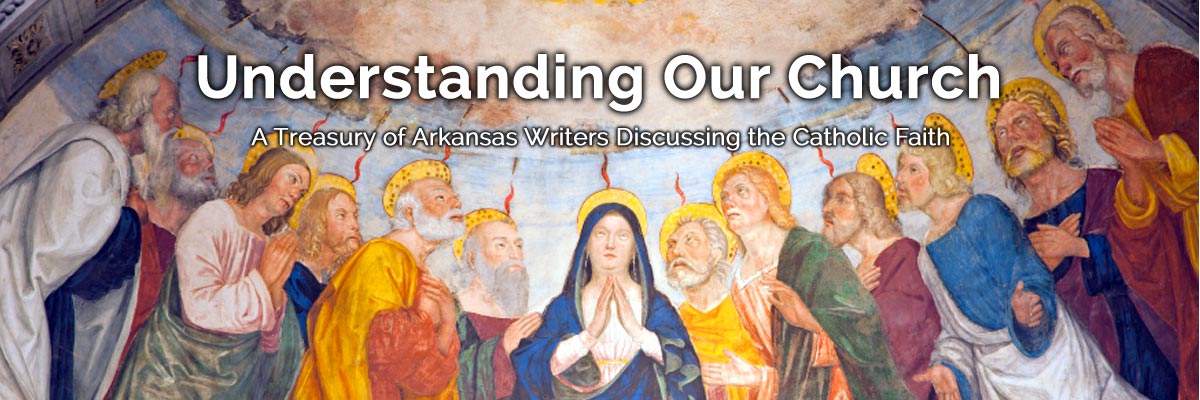Official Website of the
Catholic Diocese of Little Rock
Follow God’s example by offering clemency to those who do us wrong
Published: March 16, 2017
By Betsy Wiederkehr Huss
Blessed Sacrament Church, Jonesboro
Do we sometimes forget the amazingly marvelous things God does for us? Especially, if we look at what we truly deserve or could justly receive from him. Clemency has been offered to us. We are sinners, yet God loves us and sent his Son, Jesus, to die for us so we could experience true life. Why?
Because he created us, loves us dearly, wants a relationship with us, wants the best for us and wants us to love and care for others too. God’s mercy and grace are amazing. One way to live in his grace is through forgiveness — asking for it and bestowing it.
Jesus suffered horribly for our redemption. So, when we see a crucifix, may it remind us of God’s mercy on us through Jesus’ act of reconciliation and the great love with which all this happened and is still happening.
From Micah 7:18-20, these phrases might jump out at us: removes guilt, pardons sin, does not persist in anger, delights in mercy, again have compassion, show faithfulness. These phrases bring to mind clemency in action.
According to the Merriam-Webster Dictionary, the legal definition of clemency is: (1) willingness or ability to moderate the severity of a punishment; (2) an act or instance of mercy, compassion or forgiveness. Why choose the legal definition?
Because when we appear before the Almighty when our judgment time comes, Jesus will be there. We deserve death but instead our debt has been paid in full by Jesus, and we get to live. Check out Romans 6:23, “For the wages of sin is death, but the gift of God is eternal life in Christ Jesus our Lord.” (New American Bible Revised Edition)
According to the Catechism of the Catholic Church, “the regular confession of our venial sins helps us form our consciences, fight against evil tendencies, let ourselves be healed by Christ and progress in the life of the Spirit.” (catechism, no. 1458)
We’re informed in 1 John 1:9: “If we confess our sins to him, he can be depended on to forgive us and to cleanse us from every wrong. And it is perfectly proper for God to do this for us because Christ died to wash away our sins.” (The Living Bible)
So, being struck by clemency in association with forgiveness, compassion and mercy, I looked at related words and antonyms of clemency. Related to clemency: philanthropy; empathy; commiseration; kindness; generosity; goodwill; devotion; humanitarianism; love; worship. Near antonyms to clemency: hard-heartedness; mercilessness; uncharitableness; retaliation; vindictiveness; hate; cattiness; spitefulness; bitterness; grudge.
I thoughtfully and prayerfully read over the lists. Then, I deliberately meditated on them and found a person could use this as an examination of one’s life. Did I carry out this? When? To whom did I demonstrate this characteristic? Did it have a positive impact or negative one? Spiritually impact my life? Spiritually impact others?
In the Lord’s Prayer, versions in Matthew and Luke, both speak of us forgiving others. Matthew 6:12 says: “Forgive us our debts, as we forgive our debtors.” Luke 11:4 states: “Forgive us our sins, for we ourselves forgive everyone in debt to us.” Everyone?
I don’t know about you, but I definitely have to ask God for his grace in order to show this kind of mercy. Jesus suffered horribly for our redemption. So, when we see a crucifix, may it remind us of God’s mercy on us through Jesus’ act of reconciliation and the great love with which all this happened and is still happening. May we remember to be grateful for his amazing grace, mercy, compassion, clemency and love available to us.




